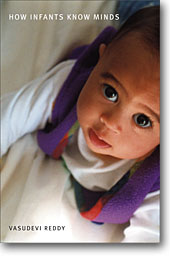September 10, 2008

Outliers: The Story of Success by Malcolm Gladwell is scheduled for a Nov 18 release, but available for pre-order and the publisher Hachette Book Group has an excerpt available here, which appears to be the whole prologue.
Product Description
In this stunning new book, Malcolm Gladwell takes us on an intellectual journey through the world of “outliers”–the best and the brightest, the most famous and the most successful. He asks the question: what makes high-achievers different? His answer is that we pay too much attention to what successful people are like, and too little attention to where they are from: that is, their culture, their family, their generation, and the idiosyncratic experiences of their upbringing. Along the way he explains the secrets of software billionaires, what it takes to be a great soccer player, why Asians are good at math, and what made the Beatles the greatest rock band.
Brilliant and entertaining, OUTLIERS is a landmark work that will simultaneously delight and illuminate.
BuzzFeed has some more links on Outliers and Gladwell…
Comments (1)
- culture,new books
September 9, 2008
Barry C. Smith discusses neuroscience topics — such as blindsight, mirror neurons, and alien hand syndrome — in relation to philosophy at Philosophy Bites.
Comments (0)
- cognitive science,philosophy of mind

Distraction: A Philosopher’s Guide to Being Free by Australian philosopher Damon Young (Melbourne University Publishing, 2008), may already be available in Australia but hasn’t made its way to the US yet. (Also a pre-order at amazon.ca and amazon.co.uk.)
Book website is here, with links to reviews, an excerpt, and more.
Product Description
Exploring the nature of distraction, the popular philosophy surrounding it, and its role in modern life, this book surmises that distraction is often a matter of what one values. Written in a playful tone, this view analyzes important aspects of life, showing that technology, acquaintances, jobs, and addictions often waste time and energy. Through the history of popular philosophy, it is demonstrated that patient, sensitive, and thoughtful attention to the world suggests that the opposite of a life of distraction is one of grateful appreciation.
Comments (2)
- culture,new books,philosophy of mind
September 6, 2008

“Babies and the sticky mitten test: how babies of only three months can learn to have a theory of mind” by Alison Gopnik in the Times Literary Supplement (Sept. 3, 2008) reviews Charles Fernyhough’s The Baby in the Mirror and Vasudevi Reddy’s How Infants Know Minds. (The TLS article spells the first author’s name “Ferneyhough” but the book cover shows it as “Fernyhough.”)
Gopnik:
Ferneyhough’s book is a memoir of his daughter’s early childhood, interspersed with information about developmental psychology. Reddy’s book is essentially academic. She explicitly argues that we should reject the idea of an objective developmental science in favour of a more engaged “second-person” approach. Both books provide exceptionally sensitive, careful and thoughtful descriptions of the everyday lives of babies, particularly the authors’ own babies. Reddy’s book is full of eloquent and informative descriptions of the playful way that even young infants tease, act coy, and generally muck about with their parents. Ferneyhough is primarily a novelist, and his book is an elegantly written, warm, thoughtful, novelistic account of his first three years with his daughter Athena.

Childhood is central to many memoirs and novels, but good descriptions of very early childhood, good stories about babies, are surprisingly rare. Perhaps it is because becoming a parent is so emotionally overwhelming that it undermines the detachment that is necessary for either literature or science. Both Reddy and, especially, Ferneyhough do a lovely job of conveying what life with a baby is like. Neither book, however, is very effective at conveying what the science of cognitive development is like.
The article goes on to describe some recent research in cognitive development, including the “sticky mitten test”…
Comments (1)
- cognitive science






